Speaking of 1960s & Co, Monsieur Glückauf! today indirectly pointed me to Jean-Marie Boursicot’s Film Library [which] provides a huge database of more than 700 000 commercials. They also have this Gauloises commercial I’ve mentioned the other day.
A country/continent search on "Africa" reveals the following commercials among others:
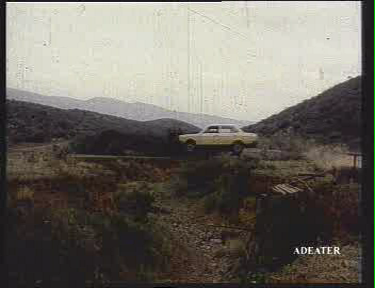
FIAT 13, une voiture pour homme, une voiture pour toi ! (1970)
(nb: a french commercial with a KENYAN numbaaa plate? :-)
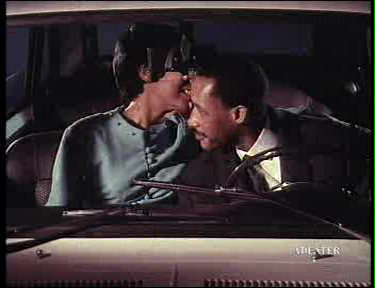
PLOUM PLOUM parfum de Paris (1966)
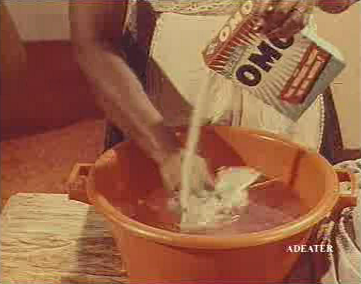
OMO washes brightest (1965)
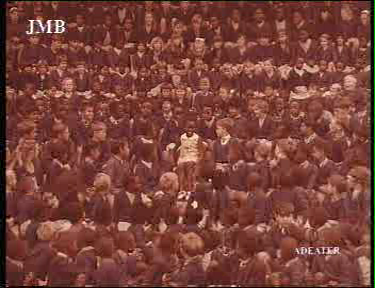
SOL, la première lessive bleue (1976) (=OMO?)
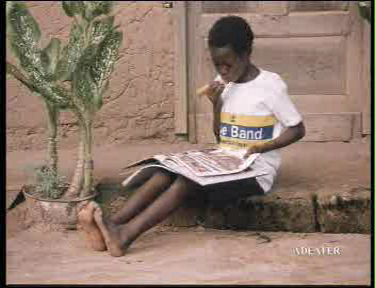
BLUE BAND, la margarine bonne mine (1985)
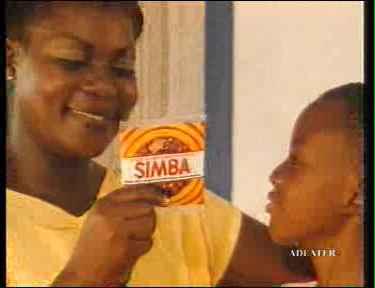
SIMBA, pour une cuisine Zaïroise plus raffinée .(1993)
And a classic 3:15min piece from 1952 for ASPRO (Aspirin®):
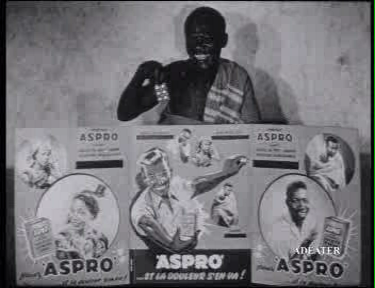
(watch his clothing!)
and within another ASPRO commercial from Algeria:
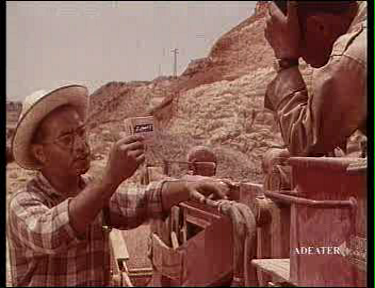
shuukran, Aspro…
Sorry, direct/hot linking of these mpeg files didn’t work – see it as an incentive to take a stroll through this interesting historical library of commercials and make your own picture of how the world has changed during the last 50 years. Well, has it really changed?
The criticism I have is that (I think) people watch these phoney worlds on tv and try to adopt their lifestyle according to what they see. So what about those that orientate themselves and their standard of living on these commercials and yet don’t have the resources to actually compare these tv worlds with reality (in the West)?
Remember those Royco Mchuzi Mix commercials from early 1990s Kenya where all the kids of this posh mid-class family gather round the table, asking mum for another round of spiced chicken ("more please!")? How many families back in those days were actually living that way? And today? Today, it seems, even the hawkers on the streets have a GSM mobile phone. Yes – that’s our Africa. Not (only!) this half-naked guy as seen in the Aspro commercial. Yani, is this still the african Africa or the westernized Africa? Wrong question?
How did this world of Cussons Soap, Smirnoff Vodka, BlueBand Margarine & Royco Mchuzi Mix – as seen on tv – actually affect the lifes of ordinary people?
In the same way (attention, interest, desire, action) it affects people around the globe? Maybe. However, I am sure, recent advertisment campaigns like the following picture of a billboard in Nairobi, Kenya contribute a lot to the economical boom – especially in places where people desperately try to improve their living standard and virtually stick to anything exotic to emphasise their progress on this.

The word on this entry is BRILLIANT! Jke thxs for always reminding us of Nyumbani yesterday and today! Magnificent piece!!!!
That BLUEBAND shirt…is dope i want it…for real
I second Irena’s observation about this post. Hmmm, i kinda thought about something similar while i was in Kenya and how advertising is HUGE now. This is so cogently written. Complex question “Yani, is this still the african Africa or the westernized Africa? Wrong question?”
No jke i think its a good question. Whatever is ‘african’ becomes sidlined as the foreground images/actions in advertising cast ‘african’ as the consumption of certain goods as expression of a certain class (be it middle class etc). (does this make sense? I think i may be restating this just so i understand the gist of this post.) very good question.
The pics are too tight and for sure some are pretty older than me.. Nice ones..
Lovely week
Nice stroll down memory lane with the images jke.
Advertising is meant to appeal to a certain element or emotion in humans and right now, people in Africa (not just Kenya) want all things western! As such, they have this concept that if they use certain products, drive certain cars, and behave in certain ways, they will be more westernized. Advertisers know this and they exploit it greatly by setting the “trend”.